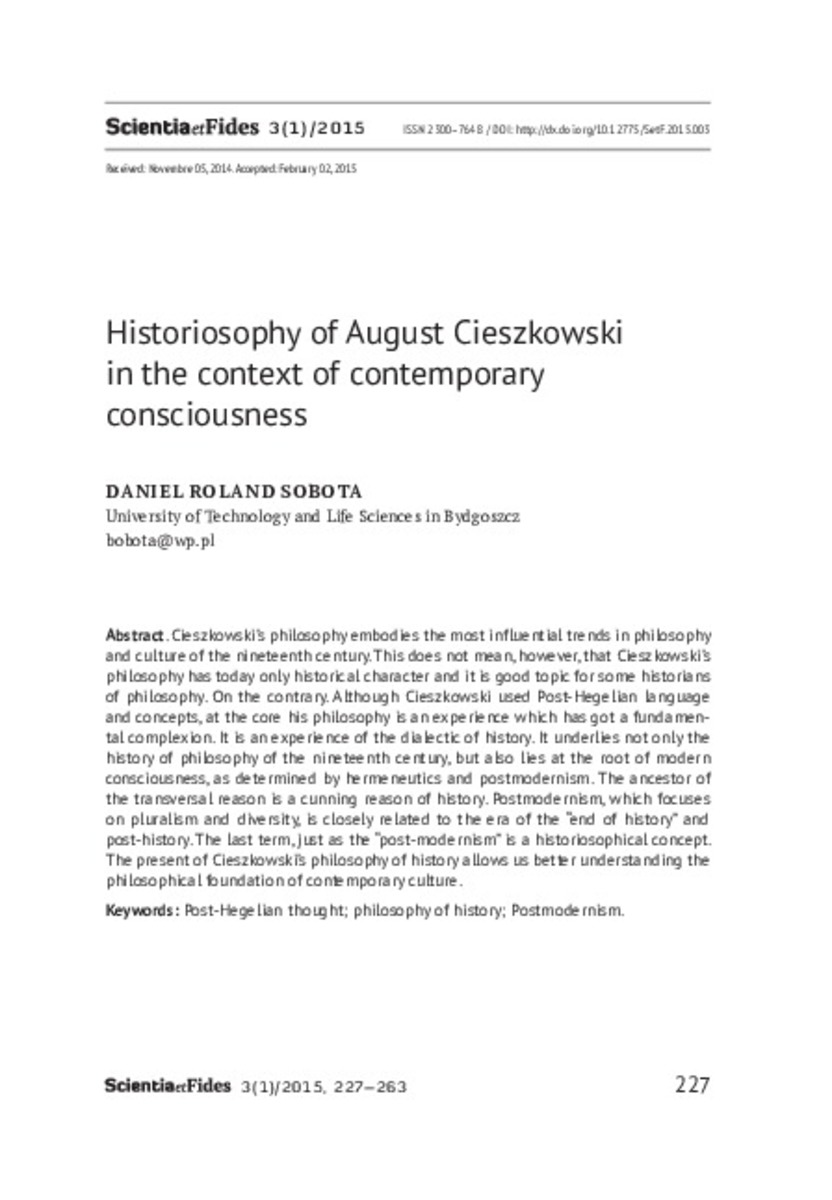Historiosophy of August Cieszkowski in the context of contemporary consciousness
Palabras clave :
Postmodernism
Philosophy of history
Post-Hegelian thought
Fecha de publicación :
2015
Editorial :
Universidad Nicolás Copérnico de Torun
Cita:
Roland-Sobota, Daniel. “Historiosophy of August Cieszkowski in the context of contemporary consciousness”, Scientia et Fides, Vol. 3, n. 1, 2014, pp.227-264.
Aparece en las colecciones:
Estadísticas e impacto
0 citas en

0 citas en

Los ítems de Dadun están protegidos por copyright, con todos los derechos reservados, a menos que se indique lo contrario.







